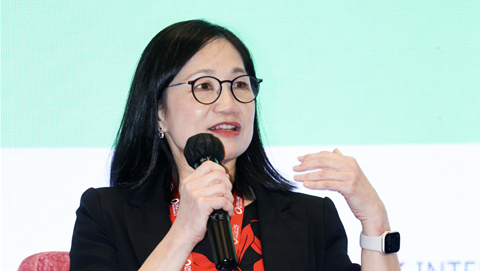Southeast Asia is shaping up to be the next battleground for tech innovation. Projections suggest that AI could add US$1 trillion to the regional economy by 2030.
A key advantage to this transformation is the rise of a new generation – AI natives. These are individuals who have grown up with the technology and are already familiar with AI and its benefits. Yet in the Asia Pacific (APAC) region, these AI natives report that nearly 75 percent of their organisations are falling behind on generative AI adoption.
It is clear that while AI offers immense potential, success requires more than just investments but also managing the expectations of their own employees when it comes to AI adoption. For companies to stay on the front foot, they now need to rethink their processes and how they can be better set up for AI success, starting from the basics.
Three critical steps for companies to consider
- Lay the groundwork
As with any major investment decision, it is critical to first ensure the organisation is set up for AI success, or risk wasted efforts and resources. The same IDC study found that in the wider Asia Pacific (APAC) region, half of the organisations surveyed say that up to 29 percent of their AI or machine learning projects have failed in the past year, citing challenges like internal skills gaps. These challenges often arise from AI implementation happening in silos.

Organisations need to realise that successful AI implementation requires a whole-of-organisation approach, and shared responsibility must be embedded throughout the company.
- Lucas Lu, Head of Asia, Zoom
From human resources (HR), security and data protection to responsible AI and legal teams, every department must work together to develop a framework for implementation. HR, for example, will need to start building relevant training programmes designed for different age groups and expertise levels, as well as hiring the right talent to drive AI development and maintenance beyond initial implementation.
This has a direct impact on AI success: Deloitte’s 2024 report found that APAC organisations with more mature AI governance frameworks experience nearly 5 percent higher revenue growth.
- Make AI decisions based on business impact
AI technology is not one-size-fits-all. Instead of simply following what others are doing, organisations must have clear answers on why the need for AI, and how AI can help target very specific business needs. Different use cases require different approaches to implementation.
For instance, organisations looking to address immediate manpower constraints could look to leverage AI-powered chatbots. This would help them reduce reliance on human agents while maintaining the same level of customer service. Teams can also make use of AI-powered translation and transcription features to serve customers in other markets even as they do not have local representatives who speak the language.
This is particularly critical for businesses in the linguistically diverse Southeast Asia region. In such scenarios, organisations can kickstart the implementation process by identifying and integrating relevant AI applications into the platforms they already use.
Companies further along in their AI journey might want to consider building an AI-first total experience across the entire organisation, cutting across both employee and customer experiences. The same platform could help agents deliver real-time, accurate responses for their customers by intelligently consolidating information across departments, while helping employees become more productive with their own AI assistants.
This might disrupt – or even overhaul – existing ways of working, but could ultimately be more cost-effective and yield strong returns for the bottom line.
Regardless of the approach, the initial phase of implementation would involve a lot of learning and experimentation. During this time, leaders should try to understand what the barriers are to adoption and constantly seek feedback from early users on how the AI rollout can be further improved.
- Teach employees to work with AI, not compete against it
An equally crucial step is building up a team of internal AI ambassadors. Yet, this is where many organisations in Southeast Asia continue to fall short.
A recent study revealed that Gen Z professionals in Singapore are the most concerned about job security in an AI-driven future, more so than any other age group.
This is concerning for two reasons. First, it highlights that this issue persists even in more mature markets like Singapore. Second, Gen Z – or simply, the AI-native generation – is the most anxious. This points to a broader lack of trust by employees in their organisations to equip them for an AI future.
Technical training programmes that showcase use cases of AI are a good start, but these programmes must be able to evolve in tandem with AI advancements. Companies can also tap into AI natives to be advocates within their teams, which have only become increasingly multi-generational.
This helps to foster a culture of continuous learning. Leaders must also proactively address employee concerns about AI. This can be through regular town halls or resource hubs that have a repository of case studies on how AI augments, not replaces human contributions.
AI is always evolving and never static
Ultimately, AI adoption in Southeast Asia will remain a moving target for businesses, as its capabilities and real-world applications continue to evolve at the speed of change. Organisations must shift from a reactive stance to a proactive approach, and this starts with embracing an AI-first mindset that keeps people at the core of the strategy.
This involves not only laying the groundwork for AI implementation but also actively preparing their workforce for the AI era. Taking an AI-first approach will ensure that organisations in Southeast Asia are well-equipped to keep pace with the next wave of AI innovation.
Lucas Lu is the Head of Asia, Zoom









